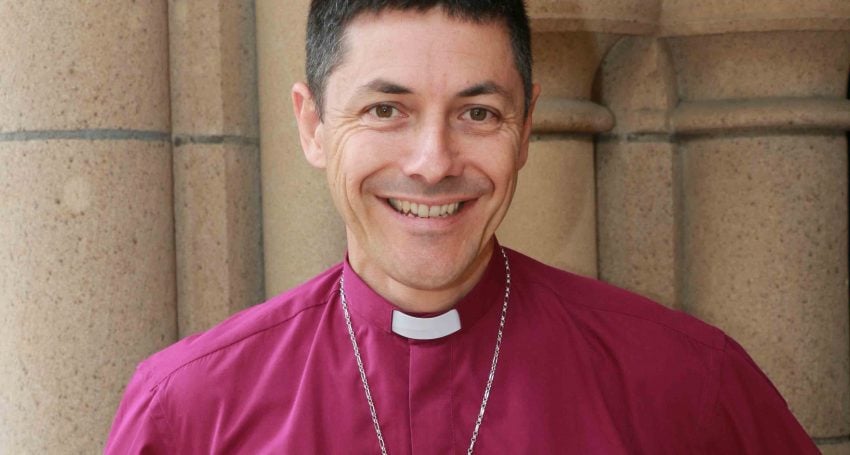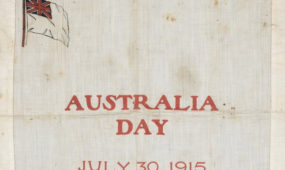Why I am taking a break from Twitter
Reflections
“As a Bishop, and therefore a community leader, I needed to reflect upon the significance of perception, especially in a medium where the reach and scope for misunderstanding are wide. It was a salutary lesson for me about how I engage online,” says Bishop Jeremy Greaves in the wake of the Prime Minister’s Australia Day remarks

In the lead up to Australia Day, I was more than a little offended when the Prime Minister sought to draw an equivalence between the experience of the convicts on the First Fleet and the plight of our First Nations peoples on 26 January 1788 when he said, “When those 12 ships turned up in Sydney, all those years ago, it wasn’t a particularly flash day for the people on those vessels either.”
Advertisement
In a single throwaway line, he dismissed over two hundred years of injustice suffered by our First Nations peoples, who have been systemically dispossessed, disadvantaged, and discriminated against since that day in 1788.
Of course, many corners of the Internet treated the Prime Minister’s comments with scorn, including satirical news sites like The Betoota Advocate. Many Twitter users took a similar stand, posting original memes featuring a pipe-toting ‘settler’ standing over First Nations people chained together by their necks (with the text, “Life wasn’t real flash for the first settlers”) and armed and mounted authorities shooting at Aboriginal men (with the text, “I just want you to know – I’m having a really sh*tty day” inserted into speech bubbles above the heads of the authority figures).

Many corners of the Internet treated the Prime Minister’s comments with scorn, including on social media (cartoon by David Pope, featured on the Political Cartoons Australia Facebook page)
I also ventured to comment on Twitter, with what was intended to be irony, on a post I read about violence inflicted on First Nations people by an early governor in NSW, tweeting, “Of course it wasn’t a particularly flash day for the Governor either.” The reaction was swift and brutal as people expressed offence at my post, misunderstanding its intention and point. As soon as I saw the response, I deleted the post and apologised. This, of course, only inflamed things and the pile-on began.
Advertisement
I was already having a bad day, so I withdrew, deleting my Twitter account and going for a run to clear my head and reflect. As a Bishop, and therefore a community leader, I needed to reflect upon the significance of perception, especially in a medium where the reach and scope for misunderstanding are wide. It was a salutary lesson for me about how I engage online. In particular, I found myself considering the difficulty of having meaningful conversation when there is not already meaningful relationship. This is particularly true when contentious matters, like egregious injustices against First Nations peoples, are discussed.
Bishop Peter Stuart recently recalled three essential characteristics, outlined by Rowan Williams, that aid the journey towards building community and real relationships. It seems to me that these three things are increasingly important in a world where polarisation so often takes us to a place where proper relationship and constructive conversation become seemingly impossible.
Williams lists these three characteristics as honesty, peacefulness and accountability.
Peter Stuart expands these as he reflects on how we might be the Anglican Church of Australia in these challenging times, with distinct expressions in different Dioceses:
- “Honesty is not simply telling the truth to one another. It is also about understanding what kind of being/person we are. No one of us has infinite scope of time to realise our aims and objectives; no one has endless time at our disposal, and no one of us is exempt from risk, internal or external.
- Peacefulness is not the denial or evasion of conflict, rather it is the resolve to engage actively in sustaining relationships that address difference and disagreements as they arise.
- Accountability begins with the habit of listening attentively to others with a view to contributing our skills and gifts to secure what is best for them.”
Dr Miriam-Rose Ungunmerr-Baumann AO, 2021 Senior Australian of the Year, also offers invaluable insights that speak into this space:
“What I want to talk about is another special quality of my people. I believe it is the most important. It is our most unique gift. It is perhaps the greatest gift we can give to our fellow Australians. In our language this quality is called dadirri. It is inner deep listening and quiet still awareness.”
Related Story
 Features
Features
‘Australia Day’, ‘Survival Day’ or ‘Invasion Day’?
She continues:
“We have learned to speak white man’s language. We have listened to what he had to say. This learning and listening should go both ways. We would like people in Australia to take time to listen to us.”
Perhaps dadirri is the gift we need at this time: this time in our nation, in our Church – the capacity to actually listen to each other with quiet, still awareness. Real listening is something that is hard to do when our only thought is about our next nasty rapid-fire riposte. Real listening is not possible when we only know each other through Tweets or Facebook posts or sound bites.
Dadirri might not bring a change of mind and won’t miraculously bring agreement, but it might just bring the beginnings of relationship and the hope of understanding. It’s not a bad thing for us to practise as we begin this year of ‘Being Together: Nurturing Relationships’ in the Anglican Church Southern Queensland. Nurturing Relationships begins when we take time to listen.
I’m not sure I’m ready to venture back on to Twitter; probably one social media account is enough for me at the moment. However, I do have a renewed commitment to honesty, peacefulness and accountability as I work out, day by day, what it means to be a Bishop in the Church of God and a Christian seeking to make my way in this fractured world.






